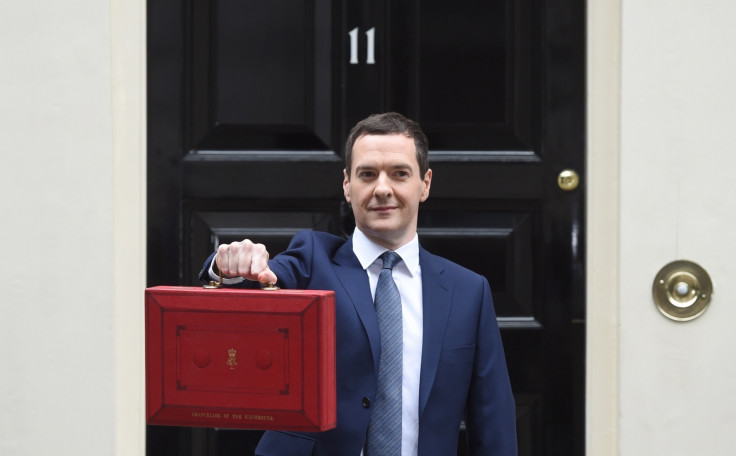James Caan: Addressing productivity puzzle is key to ensuring UK becomes dominant world economy
Productivity has certainly been the buzzword of the week, intensified in the run-up to the summer budget with everyone, including the chancellor, taking part in 'productivity puzzle' rhetoric and how this affects us all up and down the country.
Like most people, I watched Osborne unveil the first Conservative budget since 1996 with interest and was not surprised to hear productivity taking centre stage as an overarching topic of discussion.

Britain's solid economic growth is apparent, the fact we're growing at the fastest rate in nine years epitomises this. We're growing faster than any other European country and we've got more people in work than ever before.
Despite this, the fact still remains that: "Britain still spends too much, borrows too much, and our weak productivity shows we don't train enough or build enough or invest enough," as Osborne said. So despite this growth, Britain is still struggling to see an improvement in output and productivity of workers.
Addressing the productivity puzzle is key to ensuring Britain becomes the most prosperous major economy in the world. This really is "step one" to improving and enhancing our economic recovery, living standards, salaries, businesses and skills.
Our productivity decreased 0.2% in the last three months of 2014 and we are now producing 30% less per hour than many other European countries. All in all, our output is 17% below average and the repercussions of this are starting to show.
The biggest mistake we make as a nation is assuming that this is a high-level economic issue that we can't do anything about, when, in fact, it's something that impacts our daily lives and we should all be considering how we can improve our own productivity. At the end of the day, if we want wages to increase, we need to improve our productivity – that's the crux of the salary debate.
In its simplest form, productivity is about every individual adding value to the business they own or work for and really earning their salary.
Every business should have a productivity measurement tool in place, yet I'm always surprised by how many don't. Whenever I invest in a business, the first thing I want to know is how productive their staff are because it's people who build, grow and scale businesses and if you don't have a productive team who can show where they're adding value, then I don't want to invest.
If you're not training your people and making sure they're working efficiently and effectively, how do you expect to grow? The truth is you won't; your business will become stagnant.
So, what can you do to help?

The summer budget aimed to show us how productivity will be improved at the top level, but each individual has a part to play to really make a difference. Every employee needs to think about whether they're really adding value and how productive they are in their job, and every business owner needs to find a way to measure this productivity.
Some industries will find this easier than others. Manufacturing businesses, for example, are able to identify tangible measures of success, such as how quickly their product is selling and how in demand they are. Solutions to lack of productivity can also be easier to recognise, for example, investing in new equipment that will allow the business to produce products twice as fast.
People-based businesses on the other hand will find it more difficult because their added value is somewhat abstruse, so it's harder to know exactly what steps need to be taken to ensure a more productive workforce.
This is where investment in tech and skills become essential because if you're a business owner who is not taking advantage of new technologies to make your business competent and competitive, then you're at a major disadvantage.
The same goes for businesses who fail to invest in their people by offering training, recognising skills and making them aware of the value they add – how do you expect staff to be productive if they don't feel significant in their role?
I ask my team to send me weekly progress reports so I can effectively track their productivity. By doing this, every member of staff is able to tell me what a good week looks like, they set their own goals and we can both identify where they have added value that week.
There are 4.9 million small and medium-sized enterprises (SMEs) in the UK. I wonder how many of these are measuring productivity? I wonder how many of these business owners really know if they're being productive enough and if their staff are being as productive as they could be.
If the chancellor is preaching the importance of productivity for the whole economy, then surely we should be doing the same for our businesses? Why isn't the SME market preaching this on the ground? I can't tell you how many start-ups I've met that struggle to phase into a growth stage because they're not effectively measuring productivity.
We shouldn't be afraid of this – it isn't about working people to the ground, it's about working smarter, not harder.
Businesses should be investing in tech to improve their efficiency, encouraging their people to think more strategically by investing in their skills and constantly innovating to stay ahead of the game.
The economy is growing, there has never been a better time for businesses to start, grow and prosper and if we begin to invest in our productivity, the possibilities are endless.
James Caan CBE is founder and CEO of Hamilton Bradshaw, a venture capital firm based in Mayfair, and a former panellist on BBC series Dragons' Den. He supports many charities and established The James Caan Foundation to support education and entrepreneurship in the UK.
You can follow James Caan on Twitter @jamescaan.
© Copyright IBTimes 2025. All rights reserved.






















